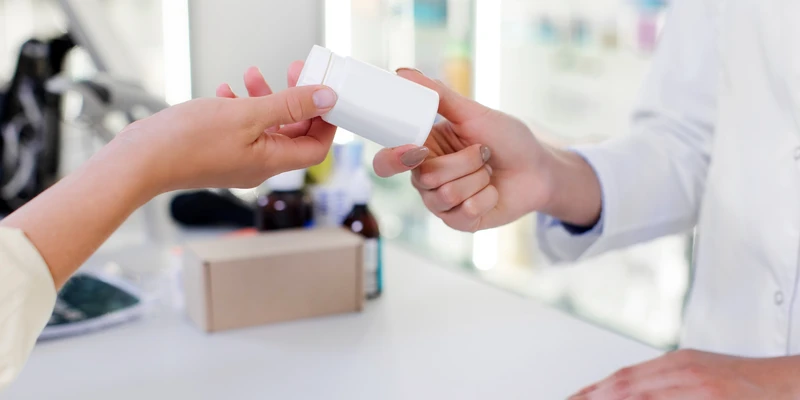
Table of Contents
- Recognizing Signs of Adderall Abuse in Peers
- Self-Medicating for Academic Pressure in LA
- Understanding ADHD Misdiagnosis and Stimulant Misuse
- Long-Term Effects of Misusing Study Drugs
- Detox and Adderall Withdrawal Help in Los Angeles
- College-Friendly Rehab Options in Los Angeles
- Cognitive Therapies That Help Break Adderall Dependency
- Parental Involvement in Student Recovery Plans
- Sober Living and Aftercare for LA College Students
- Finding Campus-Affiliated Rehab Programs Near LA
- Talking to a Roommate About Adderall Use
- Explore Supportive Rehab Locations Around Los Angeles

Adderall misuse among college students has become a growing concern, especially on campuses across Los Angeles. Originally prescribed to treat ADHD, Adderall is increasingly being used by students without prescriptions as a way to cope with academic pressure. This stimulant, known for increasing focus and alertness, is often seen as a quick fix for late-night study sessions or performance-heavy deadlines.
The culture of overachievement and intense competition within higher education environments fuels this trend. Easy access to prescription stimulants through peers, particularly in dorm settings or group projects, further contributes to Adderall’s misuse as a so-called “study drug.” Some students turn to it because they believe it’s a safer option compared to illicit substances, not fully grasping its risks.
Over time, what may begin as occasional use to meet deadlines can spiral into dependency. This form of college drug abuse is often overlooked or minimized, yet it can have serious physical and mental health consequences. Recognizing Adderall misuse as a symptom of wider student stimulant use—and not just individual lapse—is essential for creating supportive, systemic solutions on campus.
Recognizing Signs of Adderall Abuse in Peers
Adderall misuse among college students can often go unnoticed, especially when it’s rationalized as a way to boost academic performance. However, if you’re concerned about a friend or roommate, knowing what behaviors to watch for can help you identify potential issues early—and potentially make a difference in their well-being.
Common signs of study drug misuse include dramatic changes in sleep habits, such as staying awake for long periods followed by long crashes. Someone might also appear unusually energized or jittery, speak rapidly, or seem increasingly irritable or anxious. Academically, sudden shifts in performance—either improvement followed by burnout or missing classes altogether—may signal trouble.
Other warning signs include social withdrawal, heightened secrecy, or uncharacteristic emotional outbursts. If your peer is constantly talking about pressure to succeed or shows signs of extreme stress without seeking healthy coping strategies, it may point to underlying stimulant misuse.
Being observant, compassionate, and informed allows students to support peers who may feel isolated or afraid to seek help. Early conversations and encouragement can lead to healthier paths forward.
Self-Medicating for Academic Pressure in LA
For many college students in Los Angeles, academic performance isn’t just important—it can feel like the only measure of success. Highly competitive admissions, rigorous coursework, and the pressure to maintain scholarships or build impressive résumés can create a relentless environment. In this climate, the temptation to misuse stimulants like Adderall as a form of self-medication grows, especially when students feel there’s no room for failure.
Often, this misuse isn’t about recreation. It’s about coping with anxiety, lack of sleep, or burnout. Students may turn to prescription stimulants under the belief that they’re simply using a tool to stay ahead, rather than acknowledging the psychological toll it’s taking. For some, underlying issues like perfectionism, imposter syndrome, or untreated mental health conditions remain hidden while the drug use continues.
Seeking academic stress relief can be difficult when campus resources feel overstretched or stigma prevents open discussion. But recognizing that this kind of pressure can lead to unhealthy coping strategies is the first step toward finding healthier, sustainable support options for long-term well-being.

Understanding ADHD Misdiagnosis and Stimulant Misuse
In college environments where time pressures and academic expectations are high, prescription stimulant misuse often stems from deeper systemic issues like ADHD misdiagnosis. Students may be incorrectly diagnosed, sometimes without thorough psychological evaluation, leading to unnecessary stimulant prescriptions. These medications are then seen as a shortcut to improved concentration, whether or not ADHD is present.
The casual sharing of medications among peers also plays a significant role. A friend with a legitimate prescription might offer their Adderall to someone struggling before finals, perpetuating the misuse cycle. On campuses, this behavior is often misunderstood or downplayed, masking the seriousness of prescription stimulant misuse and making it harder for students to seek legitimate help.
Stigma around both ADHD and its treatment further complicates this. Some students fear being labeled as “lazy” or “drug-seeking” if they disclose dependence or question their diagnosis. Addressing this requires more accurate evaluations, campus education about ADHD, and compassionate mental health support that doesn’t rely overly on medication. Recognizing the difference between need and misuse is a vital step in tackling Adderall abuse in college communities like those in Los Angeles.
Long-Term Effects of Misusing Study Drugs
While study drugs like Adderall may seem like short-term academic aids, chronic misuse—especially beginning during college years—can lead to serious long-term consequences. Misusing prescription stimulants can alter brain chemistry, increase risk of dependency, and cause significant cognitive disruptions even after use stops.
Physically, prolonged Adderall misuse may lead to heart complications, high blood pressure, and sleep disorders. Psychologically, users often experience increased anxiety, mood swings, and even depression. These effects can be especially pronounced in college students balancing academic pressure and irregular routines. Over time, the brain’s natural reward systems can become dependent on stimulants for focus and motivation, making withdrawal and recovery more challenging.
Cognitive deficits such as memory problems, impaired decision-making, and executive dysfunction can persist—impacting not just academic performance, but long-term career and personal growth. For students in Los Angeles, understanding these risks is key to making informed choices, especially in environments where performance pressure and stimulant availability intersect. Addressing the issue early can prevent lasting harm and open the door to healthier strategies for academic success.

Detox and Adderall Withdrawal Help in Los Angeles
When Adderall use shifts from occasional study aid to dependency, safe and supportive withdrawal becomes a critical first step. Many students facing Adderall abuse in college, especially in competitive academic environments like Los Angeles, may fear the discomfort and uncertainty of detox. Understanding the process can ease some of that anxiety and encourage early intervention.
Withdrawal from prescription stimulants like Adderall typically includes symptoms such as fatigue, depression, anxiety, irritability, and cravings. These effects usually begin within 24 hours of stopping use and may last from a few days to a few weeks, depending on the duration and intensity of use. Supervised detox—whether inpatient or outpatient—can provide clinical monitoring, emotional support, and sometimes medication to ease these symptoms.
Professional detox services in Los Angeles often collaborate with rehab programs tailored for college students. Early care during withdrawal helps prevent relapse and opens the door to long-term healing. Seeking Adderall withdrawal help is a vital step toward reclaiming balance, focus, and independence.
College-Friendly Rehab Options in Los Angeles
Finding treatment that fits within a student’s busy college life can be challenging, but Los Angeles is home to a variety of rehab options tailored to meet the specific needs of students. Many centers offer outpatient programs designed around academic schedules, allowing you or your loved one to attend therapy during evenings or weekends without falling behind on coursework.
Outpatient rehab near campus helps maintain continuity in education while addressing mental health and substance misuse. These programs often include cognitive behavioral therapy, academic support services, and access to licensed clinicians who understand the unique pressures of student life. Short-term intensive outpatient programs (IOPs) are also available, offering structured support without the need for overnight stays.
Confidentiality protections are especially important for students concerned about stigma. Accredited programs in Los Angeles uphold privacy laws like HIPAA and often allow discretion in scheduling and attending sessions. Some universities even collaborate with local treatment providers, offering referral support through campus mental health services.
Whether you’re seeking rehab for students due to Adderall misuse or the misuse of other stimulants, know that viable treatment paths exist. With customized care options and academic flexibility, college students in LA can begin recovery without sacrificing their future.

Cognitive Therapies That Help Break Adderall Dependency
Students struggling with Adderall abuse in college—especially across Los Angeles campuses—often find success with evidence-based talk therapies designed to treat prescription stimulant misuse. Among the most effective is Cognitive Behavioral Therapy (CBT), which helps students identify unhelpful thoughts, address academic stress, and build healthier study and coping habits. For college students overwhelmed by expectations, CBT can also ease the pressure that fuels study drug misuse.
Motivational Interviewing (MI) is another well-regarded approach. This technique works by exploring a student’s ambivalence about stimulant use, then helping them commit to change on their own terms. Especially within outpatient rehab settings near college campuses, MI empowers young adults to gain autonomy over their recovery journey.
Many Los Angeles rehab programs offering student-focused care also integrate mindfulness practices and stress reduction techniques. These tools complement therapy by promoting balance and reducing the need for substances as a form of academic stress relief or emotional regulation.
Parental Involvement in Student Recovery Plans
Support from family—especially parents—can make a meaningful difference when a college student is navigating treatment for Adderall misuse. While young adults may want independence in their recovery, having compassionate, consistent involvement from their parents can reinforce accountability, provide emotional grounding, and simplify practical decisions like selecting a rehab program or finding local aftercare near campus.
Parents can play a key role in recognizing the emotional toll of academic stress and advocating for options that include both mental health counseling and substance use care. Open communication, without shame or blame, helps students feel less isolated and more empowered in their recovery journey. Understanding campus mental health resources and aligning with professionals involved in care coordination can also ensure the student receives holistic, ongoing support.
Establishing collaborative expectations—from setting boundaries around medication to participating in therapy check-ins—helps families become partners in long-term healing, not just crisis management. Encouragement, structure, and empathy can be vital recovery tools.

Sober Living and Aftercare for LA College Students
Recovery from Adderall abuse doesn’t end after detox or a treatment program—it requires sustained support, especially for students reintegrating into the college environment. Sober living homes tailored to LA students offer a safe, structured setting where young adults can continue their healing while building independent life skills. These environments help reduce relapse risk by maintaining accountability and providing connection with peers in similar situations.
Aftercare plans often include counseling, support groups, academic reintegration guidance, and ongoing monitoring. Many sober living options in Los Angeles are located near major campuses, making them ideal for balancing recovery and school responsibilities. They can also involve family members to strengthen support networks and maintain open communication. Choosing the right aftercare plan is essential in helping students successfully navigate post-treatment life and academic demands. For many, this continuity of care can make the difference between a temporary break from Adderall and lasting, healthy change.
Finding Campus-Affiliated Rehab Programs Near LA
For students navigating Adderall abuse in college, Los Angeles universities increasingly recognize the importance of linking academic life with accessible recovery options. Some institutions collaborate with nearby outpatient rehabs or student-focused clinics, helping learners stay enrolled while addressing prescription stimulant misuse. Through campus counseling centers, students may receive guided referrals to local programs that specialize in student stimulant use and academic stress relief.
Occasionally, these referrals include transitional support such as LA sober living for students or personalized aftercare plans developed in partnership with community providers. While not every college directly operates rehab programs, a growing number maintain active partnerships with trusted local facilities to ensure continuity of mental health support and recovery services. Exploring these campus-affiliated pathways can be a critical step toward long-term academic and personal stability.

Talking to a Roommate About Adderall Use
Bringing up concerns about Adderall misuse with a roommate can be a delicate conversation, especially when friendship, privacy, and safety are at stake. It’s important to approach the issue from a place of care rather than judgment. Choose a private, calm moment and use “I” statements to express what you’ve noticed and how it makes you feel.
If they’re open to talking, listen without interruption and suggest exploring professional resources together. If they deny a problem or react defensively, consider setting healthy boundaries to protect your own well-being. In situations where their use puts you or others at risk, don’t hesitate to speak with a campus mental health service or resident advisor. You’re looking out for both their safety and yours.
Explore Supportive Rehab Locations Around Los Angeles
If you or someone you know is navigating the pressures of college life and struggling with Adderall misuse, finding nearby support can make a real difference. Los Angeles is home to a range of rehab centers, many designed with students in mind—including options near UCLA, USC, and other major campus hubs. Whether you’re considering outpatient care, seeking academic stress relief, or looking into sober living homes tailored for young people, there are environments that understand what you’re going through. Taking the step to explore these resources can lead to safety, confidence, and lasting change during your college years.
Frequently Asked Questions
Is Adderall abuse common in Los Angeles colleges?
Yes, Adderall abuse is a growing concern on college campuses across Los Angeles. Many students misuse the drug for academic performance, focus during exams, or to manage heavy workloads, often without a diagnosis of ADHD.
Can I get help for Adderall addiction while in school?
Absolutely. LA colleges often have mental health and referral services that connect students to outpatient treatment, therapy, and medication management. Some programs even specialize in student-friendly schedules and academic support.
Are there college-friendly outpatient rehab options?
Yes, there are outpatient programs in Los Angeles tailored to college students. These may offer flexible hours, therapy groups for young adults, and collaboration with campus health services.
Does insurance cover treatment for Adderall misuse?
Most insurance plans, including those through parents or student health services, offer some level of coverage for substance abuse treatment. It’s important to verify coverage details with your provider before beginning a program.
What are signs of Adderall dependency in students?
Warning signs include needing higher doses to focus, taking the drug more often than prescribed, and using it during non-study times. Mood swings, sleep disruption, and anxiety can also indicate a problem.
How do I talk to my child about stimulant misuse?
Start with empathy and curiosity—not judgment. Ask open-ended questions, express concern for their well-being, and offer to explore support options together rather than forcing change.
Can academic stress lead to prescription misuse?
Yes, students under extreme academic pressure may misuse prescription stimulants as a way to cope. Fear of failure, deadlines, and competition can contribute to risky decisions around study drugs.
What therapeutic methods work best for student recovery?
Cognitive Behavioral Therapy (CBT), motivational interviewing, and peer support groups have shown success in treating stimulant misuse in students. Many programs also integrate academic and lifestyle coaching.
Is detox necessary for Adderall dependence?
Detox may be beneficial for those with long-term or high-dose use, especially if withdrawal symptoms are severe. Medical supervision ensures safety and comfort during the process.
Where can students find sober housing in Los Angeles?
Sober living communities near colleges can support students post-treatment. These homes offer structure, peer accountability, and continued access to outpatient care while transitioning back into academic life.








































